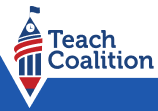New York City’s non-public school enrollment began the school year with record numbers; there are now more than 200,000 kids in pre-K – 12th grade in Jewish day schools, yeshivas, Catholic schools, Muslim schools, private schools and other non-public educational institutions. This enrollment constitutes 18.1% of New York City’s total school population. And all of these children started the new term with a safe environment as a paramount concern, with the launch of a program to provide an increased number of security guards at their schools, ensuring that the kids are learning in the safest, most inviting environment.

The law, introduced by Councilman David Greenfield, sets aside nearly $20 million to protect these non-public schoolchildren and makes New York the first city in the country to provide children in non-public schools with the same security as their peers in public schools. “I fought for years to bring security guards to non-public schools,” Greenfield stated, “because every student has the right to a safe place to learn. After five years of hard work, I’m thrilled that I have been able to realize my vision of making New York’s non-public schools safe for all students. I want to thank Teach NYS for their tireless support and advocacy in helping me to make this happen.”
Having security guards at his children’s school, Barkai Yeshivah in the Midwood section of Brooklyn, is quite simply a “necessity,” declares Morris Tabush. While Barkai Yeshivah has had security personnel onsite for a couple of years, Tabush added, “it has always been a financial burden. In the yeshiva world, money is always extremely tight. So much of our budget goes to financial assistance. So to be able to get this help from the city is a huge boost. And I’m grateful to Teach NYS for the tremendous work it did, and continues to do for the Orthodox community and the Jewish community at large.”’
Rabbi Pinchas Avruch, executive director of Bais Yaakov Academy of Queens, wholeheartedly agreed: “The idea of having security guards at the school came up numerous times but there wasn’t a great urgency. Then the San Bernadino tragedy happened. And it quickly became a priority!”
He explained that when the city program was passed, the school decided to move ahead with having guards because the financial barrier to having them was lifted. After all, he said, “every child has the right to a safe school environment.”
That was the overarching goal of Teach NYS’ advocacy, according to Allen Fagin, the OU’s executive vice president. “Now more than ever, with families increasingly concerned about security, all kids deserve a safe learning environment and this bill helps provide that.”
The bill allocates $19.8 million in city funding in the first year for non-public schools to train and hire unarmed, licensed, private security guards at schools with at least 300 students, with one additional officer per each 500 students. A school with 2,000 students, for example, would be provided with five guards.
Nathan Diament, executive director of OU Advocacy, noted that the Orthodox Union also spearheaded the creation of the Department of Homeland Security’s Non-Profit Security Grant Program in 2005 to assist synagogues, Jewish day schools and other nonprofits at risk of terror attacks in making their buildings more secure.
These funds, combined with other allocations, are enabling hundreds of New York City Jewish day schools to go beyond hiring security guards and to make target-hardening enhancements. For instance, in New York State, schools may be reimbursed for security equipment they purchase.
Said Maury Litwack, Director of State Political Affairs for the Orthodox Union, “Both Jewish schools and synagogues have to balance between keeping the attendees safe and buildings secure, and offering a welcoming environment. We are now in a much better position to do so with these new laws taking effect, and the critical assistance they provide.”

